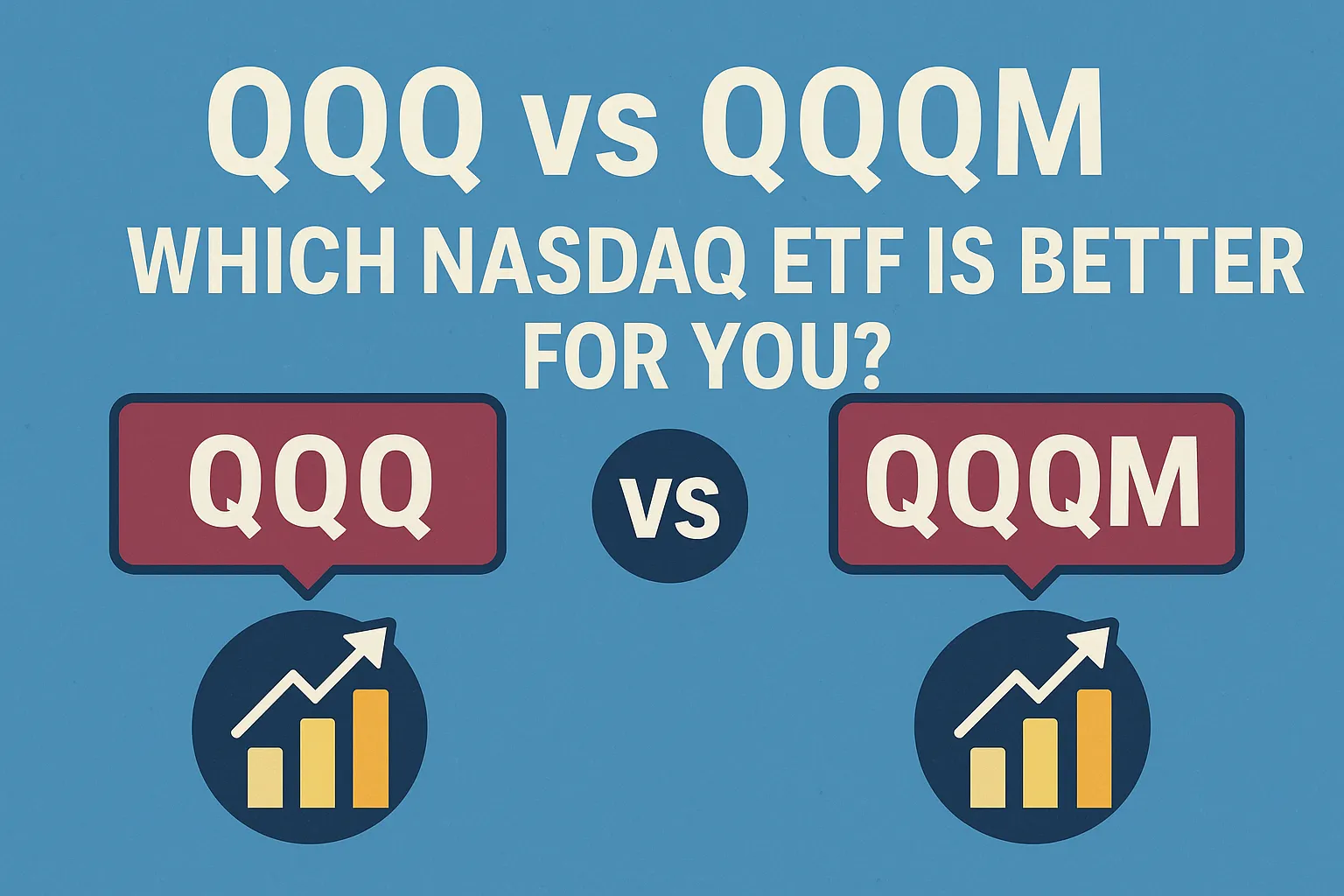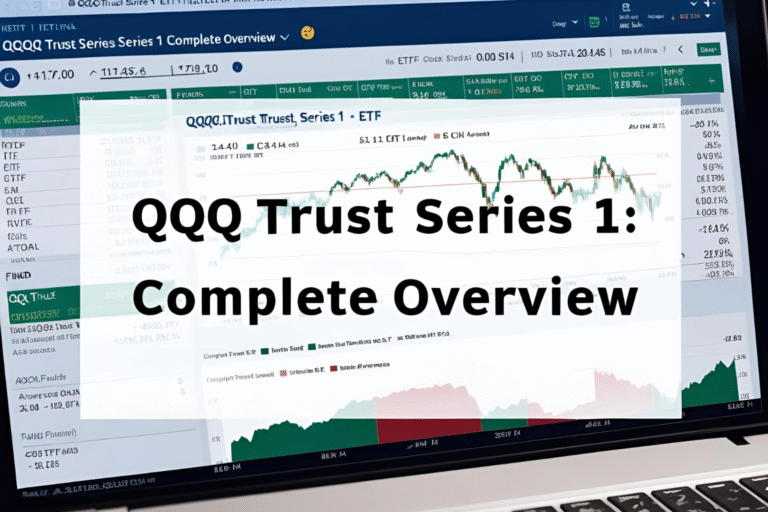QQQ vs QQQM: Which Nasdaq ETF Is Better for You?
Introduction
If you’re considering investing in a Nasdaq-100 ETF, you’ve likely come across both QQQ and QQQM. Though both track the same index, there are key differences that make each suited to different types of investors. This guide breaks down the key aspects of QQQ vs QQQM to help you make an informed decision.
What Is QQQ?
QQQ is the Invesco QQQ Trust, an ETF that has been around since 1999. It is extremely popular due to its liquidity, tight spreads, and heavy exposure to leading tech companies like Apple, Microsoft, and Nvidia. It trades on the Nasdaq exchange under the ticker QQQ.
What Is QQQM?
QQQM, or the Invesco Nasdaq 100 ETF, is a lower-cost version of QQQ, launched in 2020. It tracks the same Nasdaq-100 Index but with a lower expense ratio, and is designed for buy-and-hold investors rather than traders.
Key Differences: QQQ vs QQQM
| Feature | QQQ | QQQM |
|---|---|---|
| Launch Year | 1999 | 2020 |
| Expense Ratio | 0.20% | 0.15% |
| Liquidity | Extremely High | Moderate |
| Target Audience | Traders & Institutions | Long-term Investors |
| Dividend Schedule | Quarterly | Quarterly |
| Ticker Symbol | QQQ | QQQM |
Which Is Better for Trading?
QQQ is better suited for active traders due to:
- High trading volume
- Lower bid-ask spreads
- Shorting and options availability
Which Is Better for Long-Term Investing?
QQQM may be ideal for long-term investors because:
- It has a lower expense ratio
- Similar exposure with less frequent trading needs
- Potentially better value over time for buy-and-hold portfolios
Performance Comparison
Since both ETFs track the same index, their performance is nearly identical. The slight difference in returns over time can come from the lower fees in QQQM, especially in large investments held over years.
Should You Switch from QQQ to QQQM?
If you’re currently holding QQQ and are a long-term investor, you might consider switching to QQQM for lower fees. However, weigh the costs involved in selling QQQ—like capital gains taxes or trading fees—before making a move.
Final Verdict
- Choose QQQ if you need high liquidity, are trading regularly, or use options strategies.
- Choose QQQM if you’re building a long-term ETF portfolio and want to minimize fees.
Both are solid choices for Nasdaq-100 exposure—it just depends on your investing style.
FAQs
Do QQQ and QQQM hold the same stocks?
Yes, both track the Nasdaq-100 Index and hold the same companies in the same weightings.
Is QQQM cheaper than QQQ?
Yes, QQQM has a lower expense ratio of 0.15% compared to QQQ’s 0.20%.
Can I trade options on QQQM?
No, QQQM currently has no listed options; QQQ does.
Is QQQM as liquid as QQQ?
No, QQQ has significantly higher trading volume and tighter spreads.
Which one is better for long-term investors?
QQQM is more cost-effective for long-term investing due to its lower fees.




